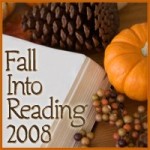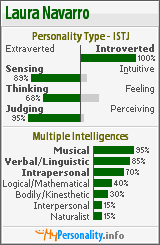I have a few friends who have recommended books by Elizabeth Goudge for a few years. I finally requested some from the library and decided to dig in. The first two I skimmed more than read. I felt like Gentian Hill and Green Dolphin Street were about twice as long as they needed to be. She writes wonderful descriptions of landscape, people, and concepts. Maybe I just felt like I had too much to do and didn’t take the time to appreciate the books. It certainly felt like I was reading to reach a goal, not to enjoy a book.
I stuck with it. The books were good enough that I didn’t feel it was a total waste of time. And I trust the women who recommended her. The next book I tried was The Castle on the Hill. She had me from the very beginning where she describes Miss Brown sitting on a bench and leaning against the roar of traffic and the street musician that draws her back into the pilgrimage. The characters were wonderful and varied and the ending was satisfactory. One thing that Miss Brown learned from the experiences in the book and from the always-happy Mrs. Heather was the foolishness of the fear that “life could cast one away. Yield yourself to it, and it will use you to the end.”
The book is set around England during World War II and we meet landed gentry, a Jew who has suffered and survived atrocities in Europe, children sent to the countryside by parents living in London, and Miss Brown, a woman who lives to wash and cook for others. I found the character of Mrs. Heather to be the most inspiring, as she has come to peace with life and death.
Then I started The Heart of the Family. This is the third book about the Eliot family. Obviously I’m not reading these in order as I haven’t read the first two. I want to find them and read them now. The characters are very interesting and real. The interactions seem too good to be true, but typical for an Elizabeth Goudge novel. I haven’t finished it, but I highly recommend it based on the 143 pages I’ve read so far.
This book has spoken to me this past week. I started it the middle of last week, and I was reading chapter 2 on Thursday the day of the visitation for my dad. At one point that day I read the pages where Lucilla, the 91 year old grandmother is thinking about how at “her age one was already beginning to live a little in the life to come and to know as they know who are set free from all deceptions and disguises of existence in the body.” She talks about her oldest son dying in WW I and how it seemed he vanished utterly from existence at his death.
“And yet now, after a lifetime of absence, here was Maurice back again, returned from the great distance and the deep silence with an ease that suggested that they were neither so deep nor so great as she had thought. He had made himself known to her as an enfolding of warm joy, as though her small soul was held within his, that was so much greater.”
Then she says to herself “And so, with you so constantly here, Maurice, my lifelong grief for you seems slightly foolish. If I had my time over again I would weep for nothing but sin.”
The whole book has spoken to me. The deep darkness, hatred, and fear of Mr. Weber. The strength of Hilary Eliot. The domestic daydreams of Caroline. The continuity of family over generations.
I can now say I understand why women are so drawn to the books by Elizabeth Goudge. She talks about the deep, inner life of a person. I am too distracted by the busy surface and need this encouragement to slow down and look deeper.





I’m so glad that you persevered with reading Goudge. The web site has been up and running for a few years and may help you to a deeper understanding of her work.
regards Deborah